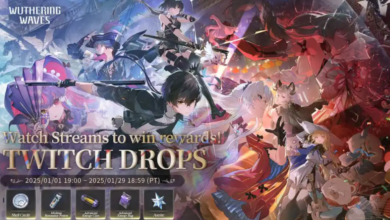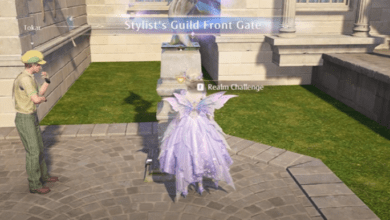Why Marques Brownlee’s New Wallpaper App ‘Panels’ is Facing Backlash
Marques Brownlee, also known as MKBHD, reigns supreme. With nearly 20 million YouTube subscribers, his voice holds significant sway. When he speaks, people listen. So when Brownlee announced the launch of his new app, Panels, the excitement was palpable. An app that curates high-resolution digital wallpapers for smartphones and desktops, Panels seemed like a no-brainer, especially coming from someone whose stylish backgrounds have sparked intrigue in his tech reviews. But almost as quickly as the app went live, it faced a storm of criticism. From steep subscription costs to privacy concerns, users aren’t sold on the concept. In this article, we’ll break down the reasons behind the backlash and whether Panels stands a chance in today’s app ecosystem.

The Premise Behind Panels
At first glance, Panels appears to fill a niche that many tech enthusiasts have been curious about for years. Where does Marques Brownlee get his wallpapers? His fans have often wondered, especially when his gadget reviews showcase devices with eye-catching, high-quality backgrounds. Brownlee decided to capitalize on this curiosity by creating an app that brings together premium digital art from talented creators across the globe.
The app offers a library of curated wallpapers in stunning resolution, catering to users who want to customize their devices with unique designs. But here’s the catch: while you can access some images for free, getting full access to high-resolution wallpapers comes with a hefty price tag.
The Pricing Model: Worth It or Too Steep?
One of the primary reasons Panels has come under fire is its subscription pricing. Brownlee offers two tiers: $49.99 per year or $11.99 per month to unlock high-res wallpapers without ads. For some, these prices seem unjustifiable, especially when compared to other digital services like Spotify or Amazon Prime, which offer far more utility for a similar or even lower cost. Users who opt for the free version can only download low-resolution wallpapers after sitting through two 30-second ads per image.

Many fans were quick to voice their discontent. One Reddit user commented, “I’d be interested for a small fee, maybe. Like $1 a month or $20 a year. But they want more than my student Spotify or Amazon Prime subscription!” This sentiment was echoed across social media, with many questioning why they should pay a subscription for something as simple as wallpapers, particularly when high-quality images are widely available for free across the web.
Subscription Fatigue in the Digital Age
Let’s face it: subscription fatigue is real. In a time when we’re already paying for multiple streaming services, music apps, and software subscriptions, adding yet another one especially for wallpapers feels like a stretch for many. People are growing weary of apps that demand monthly payments for what seems like limited utility.
Another user aptly put it, “Even if it was that cheap, I’d still find it weird to pay a subscription for wallpapers. You know someone will rip them and post them somewhere for free.” This highlights a key challenge for Panels: while the app may offer exclusive and curated content, it’s difficult to convince users to pay for something that can easily be found elsewhere without a price tag.
The Artist Revenue Model: Good Intentions, but Is It Enough?
One of the redeeming aspects of Panels is its support for digital artists. Brownlee has stated that artists receive a 50% cut from wallpaper sales, a commendable effort in an age where generative AI threatens the livelihood of many creatives. However, there’s a catch here too: after Apple takes its standard 30% cut from each in-app purchase, artists are left with about $2.80 per $8 wallpaper sale. While this provides creators with a potential new revenue stream, the earnings may not be enough to make a significant impact.
Furthermore, in a marketplace where high-res art can often be downloaded for free from platforms like Unsplash or Reddit, convincing consumers to pay for something they’re used to getting at no cost presents a challenge. As another Reddit user pointed out, “I normally just get high-res wallpapers from artists that post them online… Even then, I would maybe buy ONE wallpaper for max $3 if it’s cool enough.”
Privacy Concerns: The Elephant in the Room
The pricing issues were only the beginning. Shortly after launch, eagle eyed users spotted something else troubling: Panels was flagged for potential privacy risks. According to the App Store’s data, the app could track users’ location, usage data, and personal identifiers across other apps and websites. In an era where privacy is a top concern for many consumers, this revelation didn’t sit well with fans.
To Brownlee’s credit, he quickly addressed these concerns on social media, stating, “First thing we’re doing is fixing the excessive data disclosures, as people rightfully brought up. For transparency, we’d never actually ask for your location, internet history, etc. The data disclosures (that everyone is screenshotting) are likely too broad, and largely driven by what the ad networks suggest. Working to fix that ASAP.”
While his response was swift, the damage may have already been done. Privacy concerns are hard to shake, and they often leave a lasting negative impression on potential users.
Navigating User Expectations: The Weight of Influence
As a tech reviewer with a reputation for being discerning and objective, Brownlee’s move into the app development space comes with high expectations. Fans have grown accustomed to him critiquing overpriced tech or features that don’t deliver value. So when Panels seemed to fall into that category an app with high costs and questionable value the backlash was inevitable.
One user remarked, “i understand that mkbhd (and his team) and the artists both need to make $$$, but imo this just shows how out of touch MKBHD has become. 50 bucks a year just for wallpapers? Come on….” The comment reflects a growing perception that Brownlee may be out of step with his audience’s willingness to pay for certain digital products.
What’s Next for Panels? Can the App Recover?
Despite the rough launch, there’s still hope for Panels. Brownlee has promised to make improvements based on user feedback, dialling back the frequency of ads for free users and refining the app’s privacy policies. He has also hinted at future features that could make the app more valuable over time. But is it enough to turn things around?
Only time will tell. While Panels offers a unique opportunity for digital artists to monetize their work, the app faces steep competition from free sources of high-quality wallpapers. Additionally, with pricing that seems disproportionate to the perceived value, Brownlee and his team will need to find creative ways to justify the subscription model if they hope to win over more users.
Conclusion: Lessons Learned from the Launch of Panels
Marques Brownlee’s foray into the world of app development hasn’t gone as smoothly as planned. Between high subscription costs, privacy concerns, and user pushback, Panels is facing an uphill battle. However, the app’s intentions supporting digital artists and offering curated, high-quality wallpapers are commendable. With the right adjustments, Panels could still carve out a niche for itself in the digital art world.
The launch of Panels also serves as a valuable lesson for other tech influencers looking to develop products: even with a massive following, success is far from guaranteed. Consumers today are more discerning than ever, especially when it comes to pricing and privacy. If Brownlee and his team can address these concerns, Panels may yet turn things around, but for now, it’s an uphill climb.





